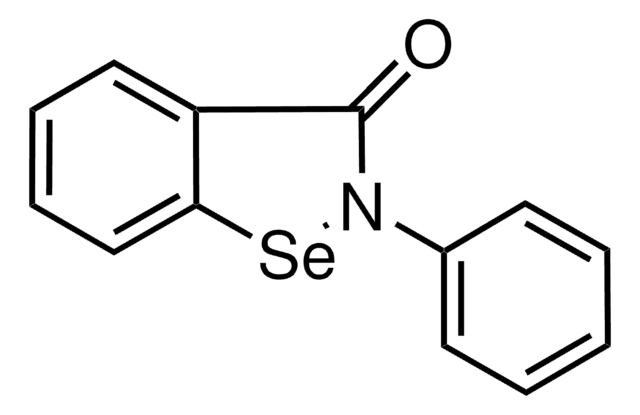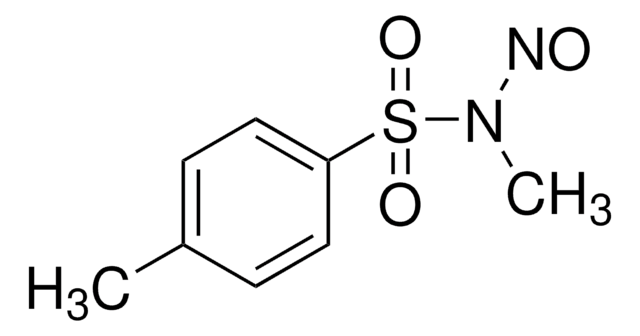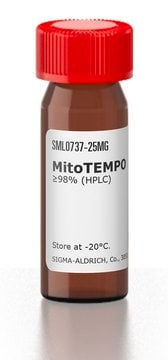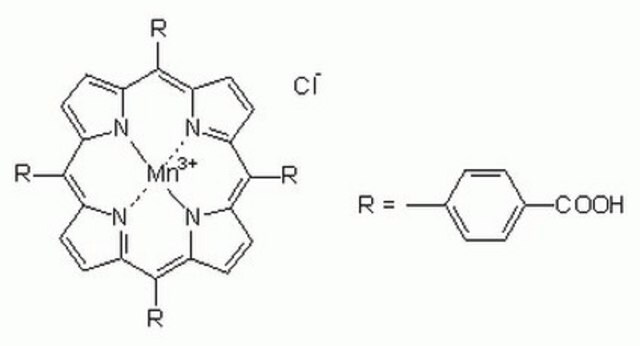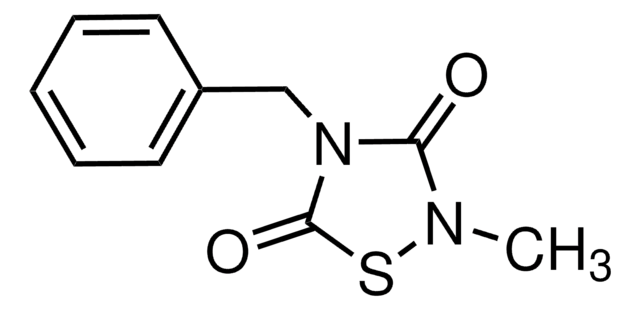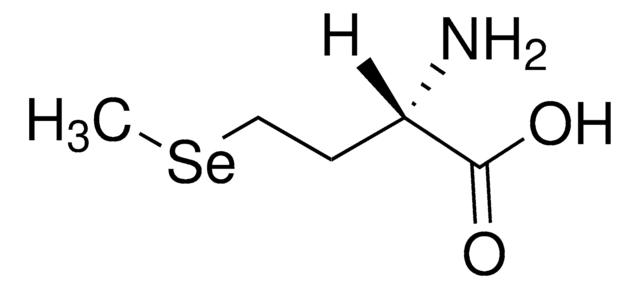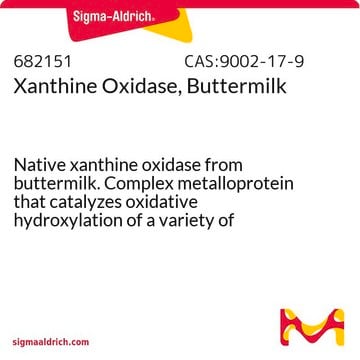E3520
Ebselen
powder, ≥98% (TLC)
Synonym(s):
2-Phenyl-1,2-benzisoselenazol-3(2H)-one
About This Item
Recommended Products
product name
Ebselen, cysteine modifier
Quality Level
Assay
≥98% (TLC)
form
powder
mp
176-182 °C
solubility
chloroform: 19.60-20.40 mg/mL, clear, yellow
storage temp.
2-8°C
SMILES string
O=C1N([Se]c2ccccc12)c3ccccc3
InChI
1S/C13H9NOSe/c15-13-11-8-4-5-9-12(11)16-14(13)10-6-2-1-3-7-10/h1-9H
InChI key
DYEFUKCXAQOFHX-UHFFFAOYSA-N
Looking for similar products? Visit Product Comparison Guide
General description
Application
- voltage-dependent calcium channels (VDCCs) blocker
- glutathione peroxidase mimetic to test its inhibitory effect on contraction-mediated deoxy glucose (2-DG) uptake in mouse
extensor digitorum longus (fast-twitch) muscle
- glucocerebrosidase inhibitor
- hepatitis C virus helicase inhibitor
Biochem/physiol Actions
Signal Word
Danger
Hazard Statements
Precautionary Statements
Hazard Classifications
Acute Tox. 3 Inhalation - Acute Tox. 3 Oral - Aquatic Acute 1 - Aquatic Chronic 1 - STOT RE 2
Storage Class Code
6.1D - Non-combustible acute toxic Cat.3 / toxic hazardous materials or hazardous materials causing chronic effects
WGK
WGK 3
Certificates of Analysis (COA)
Search for Certificates of Analysis (COA) by entering the products Lot/Batch Number. Lot and Batch Numbers can be found on a product’s label following the words ‘Lot’ or ‘Batch’.
Already Own This Product?
Find documentation for the products that you have recently purchased in the Document Library.
Customers Also Viewed
Articles
Uncover properties and applications of the cysteine protease papain and find inhibitors, substrates, and other papain products.
Antioxidants protect biological systems from oxidative damage produced by oxygen-containing free radicals and from redoxactive transition metal ions such as iron, copper, and cadmium.
Our team of scientists has experience in all areas of research including Life Science, Material Science, Chemical Synthesis, Chromatography, Analytical and many others.
Contact Technical Service